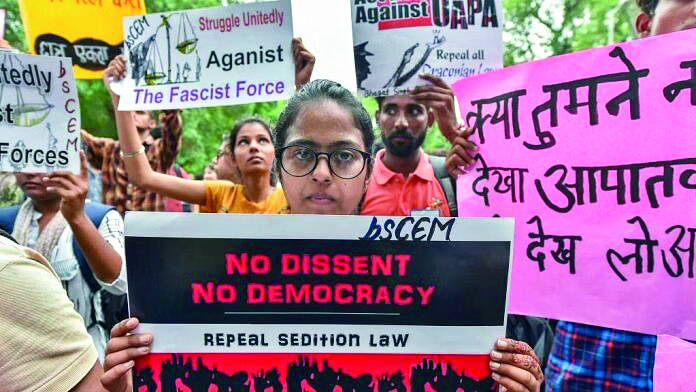Rajasthan HC: Section 152 BNS must not be used to stifle legitimate dissent

Jaipur: The Rajasthan High Court has emphasised that Section 152 of the Bharatiya Nyaya Sanhita (BNS), which criminalises actions threatening India’s unity and integrity, must not be wielded as a weapon against lawful dissent. Justice Arun Monga made these observations in the case ‘Tejender Pal Singh vs State of Rajasthan’.
The Court noted that Section 152 BNS has its roots in the now-repealed Section 124A of the Indian Penal Code (IPC), which criminalised sedition. Justice Monga remarked that the provision appears to revive the essence of sedition under a new guise, raising questions about its stringency compared to the earlier law. “It criminalises acts or attempts inciting secession, armed rebellion, or subversive activities, or encouraging separatist sentiments that destabilise the nation. Prima facie, it appears to be reintroducing Section 124A by another name,” the judge said.
The case concerned Sikh preacher Tejender Pal Singh, who sought the quashing of an FIR against him invoking Section 152 and Section 197(1)(c) of the BNS. Singh was booked in July after posting a Facebook video expressing sympathy for pro-Khalistan MP Amritpal Singh. The Court underscored that Section 152 applies only to deliberate acts undertaken with malicious intent. It highlighted the safeguard within the provision’s explanation, which exempts lawful criticism of government policies.
“The explanatory provision balances national security with individual rights, ensuring that lawful political dissent is not stifled under the pretext of maintaining sovereignty,” the Court noted.



